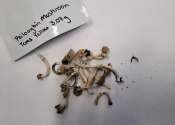Dogs can smell when we're stressed, study suggests
The physiological processes associated with an acute psychological stress response produce changes in human breath and sweat that dogs can detect with an accuracy of 93.75%, according to a new study published this week in ...






